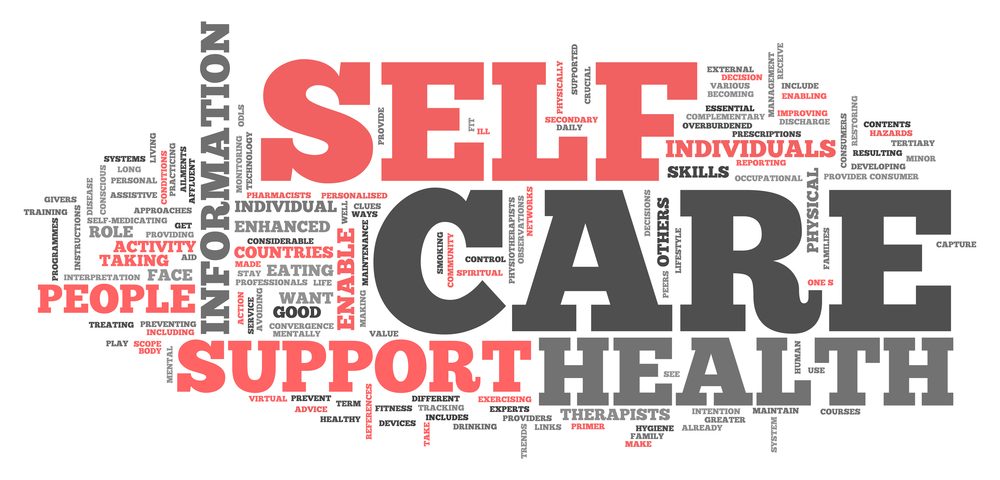Tips for Self-care While a Loved One Is in the ICU
Written by |

When someone you love is in a critical care unit, your life changes dramatically. If you choose to be present with them in the ICU, your world shrinks to about 100 square feet. It can be easy to lose track of time, other responsibilities, and even your sense of self. Things that seemed important last week no longer matter at all.
While devoting energy to caring for and supporting your loved one is the priority, it is crucial to take care of yourself, too. You cannot be a good caretaker or support person if you are emotionally, physically, and mentally exhausted.
I was with my mom for about five weeks of the three months that she was in the ICU, and one month when she was in a step-down unit after her transplant. No extended hospital stay is enjoyable, but the ICU is its own beast. It’s a time warp. It feels like you step into a black box and emerge weeks later not knowing what year it is.
My mom’s sudden decline in health and subsequent lung transplant was the most traumatic thing I’ve been through. It was the terrifying climax of a three-year period of persistent trials. After a lifetime of trying to be Ms. Tough Guy, I started going to therapy last year to help me work through, and cope with, all of the major life changes and losses I had experienced. I developed skills and strategies that helped me deal with the trauma of my mom’s stay in critical care.
I’d like to share some of my tips for how I stayed grounded during the stressful days in the ICU. There are as many ways to respond to this kind of trauma as there are people on earth, so let me preface this by saying that it is based on my own experiences. Things that helped me might not work for everyone.
- Dedicate time every day to check in with yourself about how you’re feeling. There is no wrong way to feel, and if you feel nothing, that’s normal, too — trauma can shock you into numbness. Be honest and gentle with yourself. Whenever I wanted to go a little more in-depth with my check-in, I used the “Start Where You Are” journal by Meera Lee Patel. It has prompts to get you thinking, and sweet watercolor illustrations and quotes to motivate you through whatever you’re facing.
- Journal. Every. Day. If for no other reason than to keep a record of what tests were done when or which doctors said what. It helps you keep track of what happens every day in terms of your loved one’s health, remember who’s who, and manage expectations. Plus, it is a good resource when the days start blurring together.
- Positive reflection, which I recommend as a journaling exercise, but can be done in your head anywhere, anytime. I use journaling to foster gratitude for every day. Reflecting on the positives helps to replenish emotional strength. Even if it is the worst day of your life, I promise there is at least one thing to be thankful for. Even if it’s just a stranger holding the door for you, it’s worth appreciating.
- Find a book that offers something short to read and reflect on each day. I found reading about one plant each day from “The Illustrated Herbiary,” by Maia Toll, to be therapeutic. I learned something new each day — which was in no way related to Western medicine — and found that the exercises often helped me connect to my present experience. If you’re a person of faith, many daily devotionals are available. My father-in-law sent me several that were related to stress and grief that were nice to read even as someone who doesn’t consider herself “religious.”
- Get your body moving. Sitting in a folding chair all day will do a number on your body. Go outside and take a walk around the hospital every couple of hours, or challenge yourself to see how many flights of stairs you can manage before you get too tired. Do jumping jacks in the waiting room. Whatever. You can even multitask with walking meditation.
- I mentioned it before, but therapy. Utilize the support groups at the hospital. Find groups online. Say hi in our forums. At the very least, talk to your loved one’s social worker, a spiritual leader, or a close friend. Don’t keep all of your pain to yourself.
As a caregiver, find the care tools that work best for you. Your loved one needs you to be healthy, too.
***
Note: Pulmonary Fibrosis News is strictly a news and information website about the disease. It does not provide medical advice, diagnosis, or treatment. This content is not intended to be a substitute for professional medical advice, diagnosis, or treatment. Always seek the advice of your physician or other qualified health provider with any questions you may have regarding a medical condition. Never disregard professional medical advice or delay in seeking it because of something you have read on this website. The opinions expressed in this column are not those of Pulmonary Fibrosis News or its parent company, Bionews Services, and are intended to spark discussion about issues pertaining to pulmonary fibrosis.






Leave a comment
Fill in the required fields to post. Your email address will not be published.